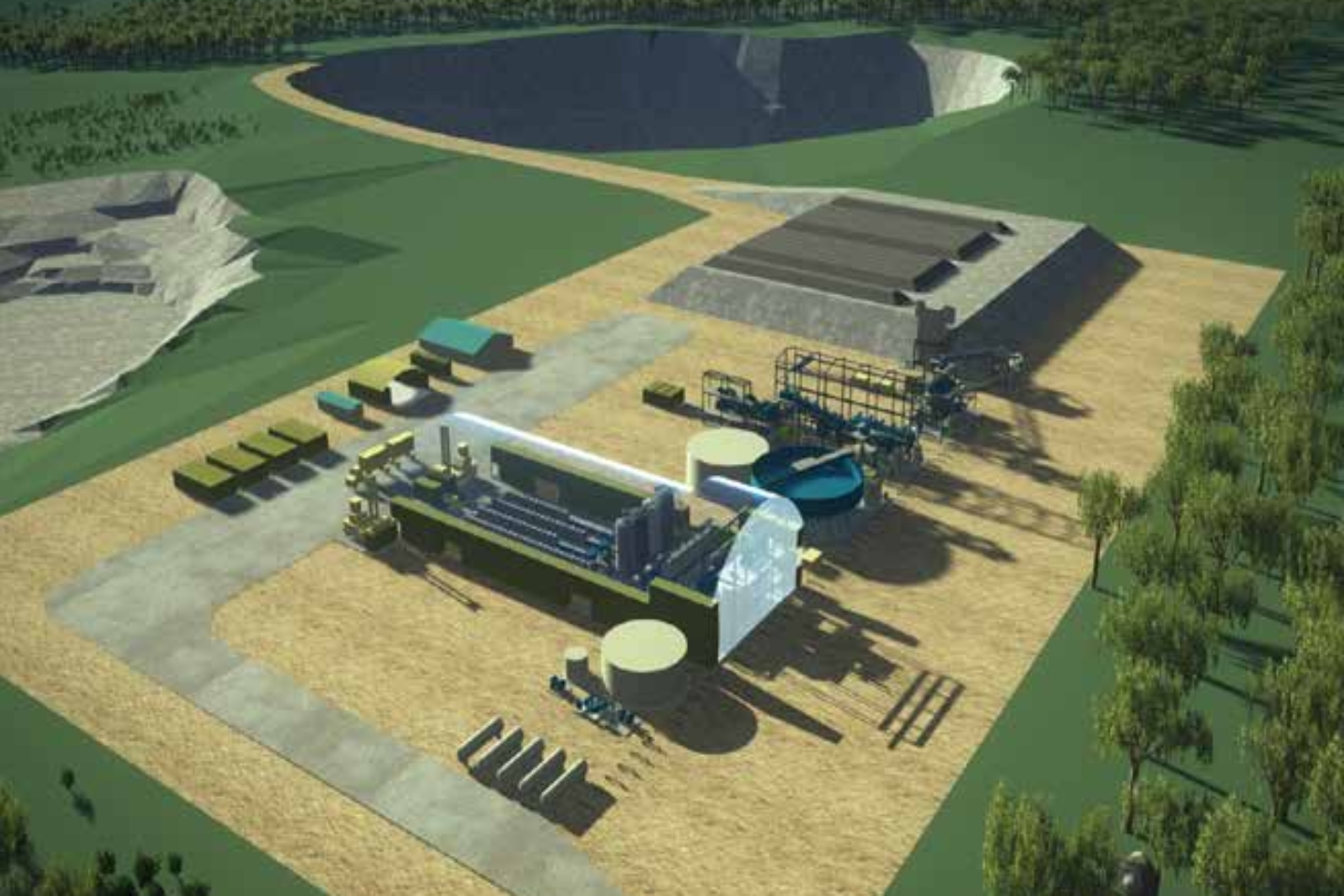Quantum Graphite believes more than doubling its mill throughput up to 1.2 million tonnes a year at its Uley 2 project in South Australia will lead to improved economics, following an independent assessment. The study by Lycopodium Minerals also looks into increasing production at the operation from 55,000 dry metric tonnes of flake graphite up to a maximum of 100,000 dry metric tonnes.


Quantum Graphite believes more than doubling its mill throughput up to 1.2 million tonnes a year at its Uley 2 project in South Australia will lead to improved economics, following an independent assessment.
The study by Lycopodium Minerals, which considers the jump from the current 550,000 tonnes, also looks into increasing production at the operation from 55,000 dry metric tonnes of flake graphite up to a maximum of 100,000 dry metric tonnes.
In addition to the new study, management says it has adopted a revised basket price following its review of market conditions and information provided by its offtake partner, MRI Trading AG. The basket price has been increased by about 33 per cent from US$919 (AU$1395.90) per dry metric tonne to US$1225 (AU$ 1860.70).
The Uley 2 project holds a resource of 6.3 million tonnes at 11.1 per cent total graphitic carbon (TGC) for a total inventory of 697,000 tonnes of contained graphite. However, Quantum believes its exploration plan has the potential to unlock a significant upgrade to the resource and ensure a suitable extension to its projected mine life.
Graphite is considered one of the most prominent ingredients in lithium-ion batteries, along with lithium, nickel and cobalt. Industry analyst experts expect demand for graphite from the battery sector will grow exponentially in the coming years with a World Bank Report forecasting a compound annual growth rate of 5.3 per cent to reach US$21.6 billion (AU$32.1billion) by 2027.
Those type of predictions have escalated on the back of China’s recent decision to put restrictions on its graphite exports.
The company and its joint venture partner Sunlands Co are working together to develop thermal energy storage cells using natural flake graphite after launching independent testwork to accelerate the commercialisation of the technology. Management says the devices could provide long-duration energy solutions and play an integral role in delivering stable and flexible energy to grids dependent on renewable power.
Earlier this year, Quantum achieved flake purity grades of 99.99 per cent graphitic carbon following thermal purification results from its final phase of testing on samples from Uley 2. The flake was treated at a thermal temperature of 2850 degrees celsius to achieve the impressive purity levels using a testwork program conducted by Germany’s Institute of Nonferrous Metallurgy and Purest Materials (INEMET), ProTherm Systems and Sunlands Power.
In March, first-phase testwork on the company’s Uley coarse-flake graphite achieved a purity of 97.59 per cent graphitic carbon at 2200°C and the company predicted increased temperatures would raise that mark to the 99.5 per cent needed for anode production. The recent results surpassed management’s expectations to achieve the 99.99 per cent purity.
Quantum sees the Uley 2 deposit as the next stage of development of the historical Uley mine, which is just a stone’s throw to the north. Back in its heyday, the century-old mine was reportedly one of the highest-grade natural flake graphite deposits in the world.
A revised 2019 definitive feasibility study evaluating only the Uley 2 reserves projected a 12-year first-phase mining operation using a conventional open-pit method.
The study envisaged $310.5 million in total undiscounted cash flows for the life of the mine, with capital costs for the proposed 500,000 tonne per annum operation estimated at just $80 million.
Is your ASX-listed company doing something interesting? Contact: matt.birney@businessnews.com.au












